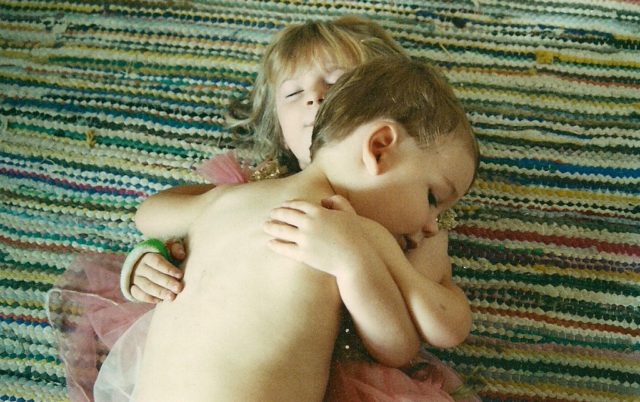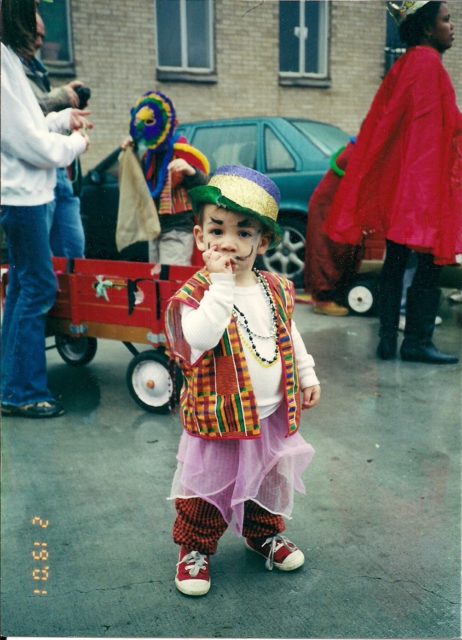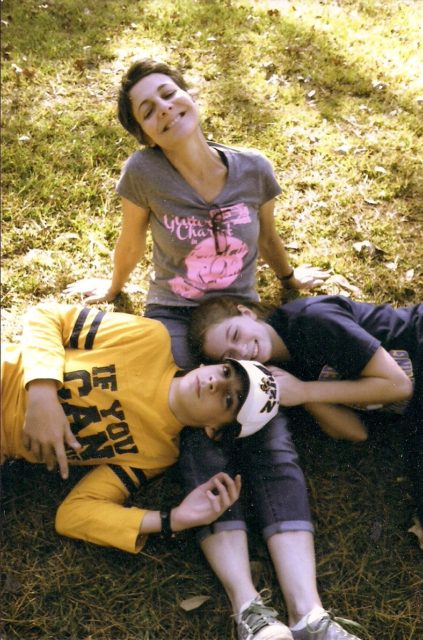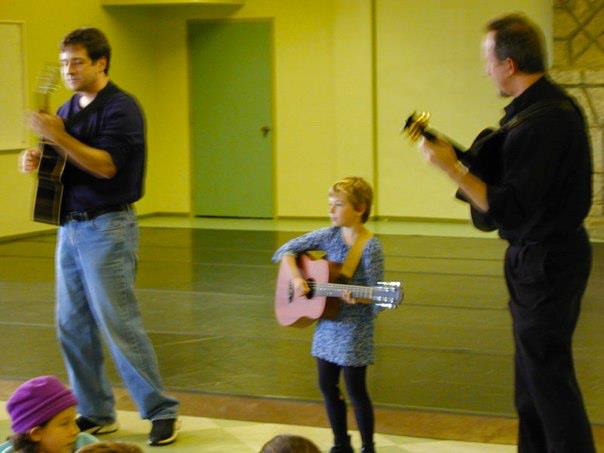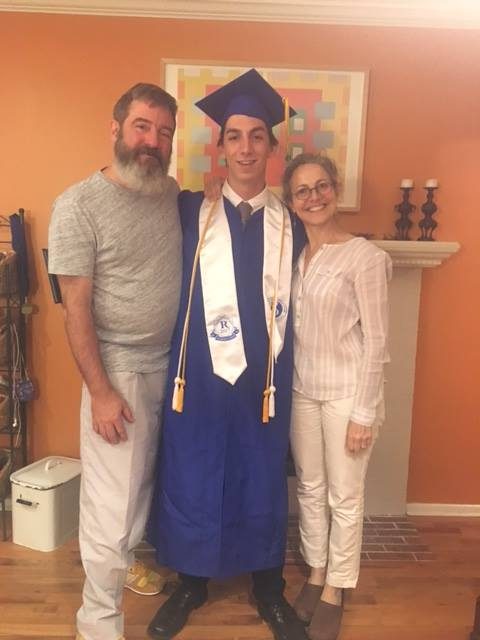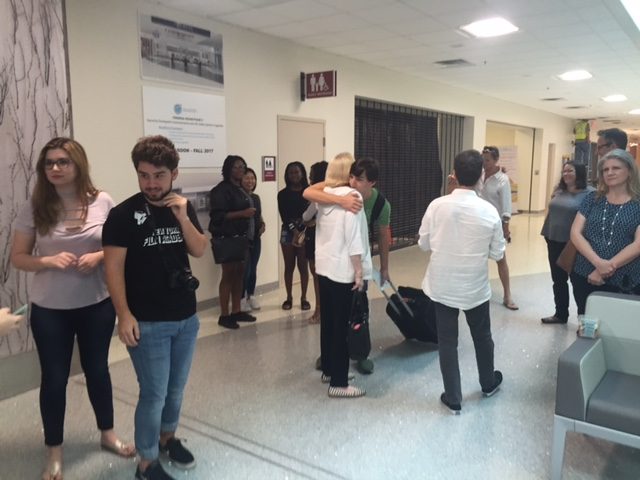At this point, just about everyone has at least heard of Ta-Nehisi Coates. His second book, Between the World and Me, won the 2015 National Book Award. Written as a letter to his teen-aged son, BTWAM has sold 1.5 million copies in 19 languages. He won a MacArthur “genius” award. His writing drew comparison to James Baldwin from no less a voice on high than Toni Morrison. He was anointed with dreadful millstone descriptions like “voice of a generation” or, even worse, “the conscience of his race”.
Now comes the follow-up, and it’s shaping up to be quite the media event. The reviews have been almost embrassingly laudatory and hagiographic profiles of Coates are popping up everywhere. The man himself has been making the rounds of all the high-profile venues. Just last night he sat down with Colbert.
So the burning question. Is We Were Eight Years in Power worthy of the fuss?
Yeah, you better believe it is.
It would have been easy to just package a bunch of his Atlantic essays, slap an introduction up front, and call it a day. It likely would have been every bit as commercially successful as the more considered volume that hits the store shelves today will be. We Were Eight Years in Power collects those essays – one from each of the past 8 years – but instead of one big retrospective introduction, Coates has written an introduction to each essay, a sort of mini-essay on where he stood professionally and philosophically at the time. Running in parallel to the uber-phenomenon of the first black presidency is the micro-story of a college dropout from Baltimore coming to grips with his voice, his thinking, his place in the world, and eventually, his blazing rocket ascension into his role “as one of the most influential black intellectuals of his generation”, as the NY Times recently put it. And then, to cap it all off, Coates offers a new meditation on the rise of the inexcusable Trump, “The First White President”, that kicks the hornet’s nest anew.
Here’s how I’d put it: Coates is shaping up to be America’s Virgil, the man of letters who will serve as our guide through the circles of hell built on the foundation of white supremacy, theft, murder, rape, and lying.
Lasciate ogne speranza, voi ch’intrate. So let’s take a walk, shall we?
The essays alone, arranged chronologically and ranging from his look at the stern moralizing of a pre-disgrace Bill Cosby to the nightmare rise of a dim-witted game show host to the Oval Office, give the reader a tour through a young man’s mind as he comes to better know himself, his craft, and the world around. But even better: the new essays give us a matured writer in conversation with his younger self, chastising the flaws and failures and giving us a glimpse of struggles that should resonate with any writer.
One of the great pleasures in this volume lies in witnessing Coates’ gradual, and then sudden, development.<fn>2015 alone saw the publication of BTWAM and his Polk award winning essay “The Black Family in the Age of Incarceration”, included here. Talk about mic-dropping.</fn> It’s as though he gains confidence both in his voice and his thinking in tandem. I wish he had included some examples of his early-years blogging at The Atlantic to paint an even fuller picture of how far he traveled in a ten year span. The blog is where I first stumbled to Coates, and I followed him regularly. He writes about that period, describing it as something of a finishing school, a place where he was able to try out ideas and voices, a place where the give and take of argumentation and citations of previously-unknown writers led him into modes of thought and investigation that were fresh and generative. It was clear that this was a guy with chops, and I remember wondering why he didn’t have a two-a-week gig on the NYT op-ed. Even raw, he was that good.
Coates backs up his provocative positions with solid evidence, but nobody turns to Coates for a recitation of statistics. He is one of the finest prose stylists alive. Every page brings at least one passage – a phrase, a sentence, an entire paragraph – that demands multiple re-readings.
At one point early in his ascent, he describes attending a dinner party where someone mentioned the Continental Divide, something he had never heard of at the time.
I did not know what the Continental Divide was, and I did not ask. Later I felt bad about this. I knew, even then, that whenever I nodded along in ignorance, I lost an opportunity, betrayed the wonder in me by privileging the appearance of knowing over the work of finding out.
Raise your hand if you ever pretended to know when you didn’t.<fn>You there, in back, with your hand down. You’re pretending. That’s it. Raise that hand.</fn>
Coates writes at length about the influences that made him the writer he has become. He speaks frequently of his love of graphic novels<fn>Post-BTWAM, Coates became the writer for the Black Panther comic series, telling the NYT that it “satisfies the kid in me” and is “the place where I can go to do something that sort of feels private again.”</fn> and how he spent hours playing and replaying certain hip-hop tracks so he could decipher the lyrics, certain that there was a structure and rhythm that he might be able to unlock.
That was how I wanted to write – with weight and clarity, without sanctimony and homily. I could not even articulate why. I guess if forced I would have mumbled something about “truth.”
It’s easy to forget that just ten years ago, Coates was struggling to get his words out, struggling (and often failing) to provide for himself and his family. Struggling to find a voice. And grappling with the question of what, exactly, he needed to be writing about, when along comes a skinny guy mixed-race guy with a beautiful family and a very black name to upend the apple cart of assumptions about race. Coates was in the right place at the right time. And he had prepared for the moment, even if it would take a few years of hindsight to realize how fortune had smiled.
It’s not fair to say that Coates would not have “made it” absent the phenomenon of Obama. He is simply too talented and curious not to have arrived in some fashion. But just as the fact of Obama created the ground that enabled the ascendancy of Trump, so too did it provide a framework for Coates to both blossom and achieve success beyond his wildest imaginings. In “Notes from the Second Year”, which introduces his 2009 profile of Michelle Obama, he acknowledges this turn of fate.
Their very existence opened a market. It is important to say this, to say it in this ugly, inelegant way. It is important to remember the inconsequence of one’s talent and hard work and the incredible and unmatched sway of luck and fate.
Revisiting Coates’ work over the Eight Years in this volume reminds me of how much his work influences my own approach, and how surprisingly<fn>Though it shouldn’t be a surprise.</fn> similar we are to one another. Bookish nerds with a fierce love of music, backed by a certainty that these arts could change the world. Civil War geeks. Devoted family guys who, often, are tormented by a seeming inability to measure up to standards of toxic masculinity as regards our success as providers. And the tie that binds all of us who lash ourselves to pen and paper: the curiosity and fear and drive and futility of trying to transform thoughts into words that sing and dance off the page.
But even with the pleasures provided by Coates’ writing, this collection is unlikely to make you feel especially chipper. Beginning with the audacious hope that the Obama era confers, the story closes with Coates pondering the specter of America’s “first white president”, a man who has achieved the highest office in the land based solely on his appeal to whiteness. In electing Trump, he suggests, “the white tribe united in demonstration to say, “If a black man can be president, then any white man – no matter how fallen – can be president.”
The American tragedy now being wrought is larger than most imagine and will not end with Trump. In recent times, whiteness as an overt political tactic has been restrained by a kind of cordiality that held that its overt invocation would scare off “moderate” whites. This has proved to be only half-true at best. Trump’s legacy will be exposing the patina of decency for what it is and revealing just how much a demagogue can get away with. It does not take much to imagine another politician, wise in the ways of Washington, schooled in the methodology of governance, now liberated from the pretense of anti-racist civility, doing a much more effective job than Trump.
In recent interviews, Coates has taken something of an absolutist stance: the myth of race and the horrific reality of racism is the one key factor, “the only thing” that explains everything, as he said to Chris Hayes. I swing between believing this to be a rhetorical gambit – a means of framing the debate on his terms, almost like a negotiating stance – and believing him to be quite sincere in this belief.
I’m not much for grand theories of everything, but he has a point. He poses compelling arguments that the United States, and everything about its financial strength and global power, is predicated on the violent appropriation of black peoples’ labor, under slavery and under both the original and new Jim Crow. He is at his most forceful when he challenges America to face its original sin, to acknowledge the “bloody heirloom”. And he is at his most resigned when he avers that a snowball stands a better chance in hell.
It’s not that Coates does not offer or hold out hope for our future. In essence, the hope lies in his demand that we acknowledge our true history, unadorned by myths of exceptionalism and bootstrappy pluck and all the other fairy tales the nation has told itself over the years.
Like Baldwin (and so many others before and since), he despairs that he will ever see such a turn of fate. Yet he manages a quiet note of hope. He quotes Baldwin:
White people in this country will have quite enough to do in learning how to accept and love themselves and each other, and when they have achieved this – which will not be tomorrow and may very well be never – the Negro problem will no longer exist, for it will no longer be needed.
The “race problem” lies in America’s enthusiastic embrace of the falsity and myths of exceptionalism and of “authentic” (read: White) American working men and women raising themselves through dint of their own merit and pluck. That this formulation rests on a false notion of Whiteness that can only exist in juxtaposition to a fabricated myth of Blackness is the unspoken dirty secret that keeps us all on blindly flailing on side-by-side treadmills, hurtling toward an illusory destination while making scant progress and never noticing that the rats in the cage next to us are really more like us than we have been led to believe.
For Coates, white supremacy is so foundational to the entire American enterprise that he sees little chance of White America writ large rejecting the premise. It’s hard to argue with him, even as it leaves one in despair. In his sit-down with Colbert, he was asked to offer hope for a better tomorrow. Coates was having none of it.
COLBERT: I’m not asking you to make shit up. I’m asking if you personally see any evidence for change in America.
COATES: But I would have to make shit up to actually answer that question in a satisfying way.
So don’t look to We Were Eight Years in Power for a pleasing bedtime tale. Coates offers analysis, not bromides. Or as he puts it in what his perhaps the most Baldwin-esque passage in the book:
Art was not an after-school special. Art was not motivational speaking. Art was not sentimental. It had no responsibility to be hopeful or optimistic or make anyone feel better about the world. It must reflect the world in all it brutality and beauty, not in hopes of changing it but in the mean and selfish desire to not be enrolled in its lies, to not be coopted by the television dreams, to not ignore the great crimes all around us.





